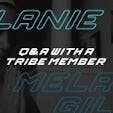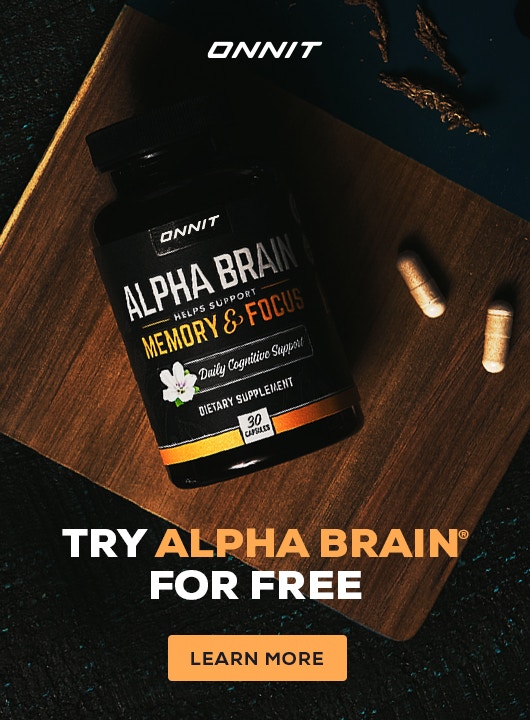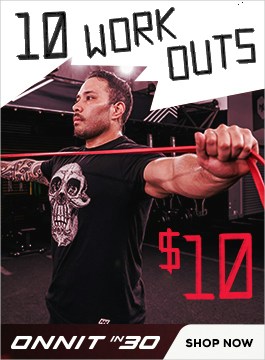It’s easy to look at her chiseled physique and masterful kettlebell skills and think that Hannah Eden is some kind of modern-day warrior princess. And the truth is, we can’t prove that she’s not—but that certainly isn’t how she started out. The British-born fitness influencer and Instagram sensation was, by her own admission, “a very dark, angry little girl” once, and she still has moments where she wants to hide her true self from the world. But with the empowerment that comes with fitness, and the support of a like-minded community (in which Onnit humbly plays a role), Eden continues to take her fans and followers along on her journey, sharing its every up and down.
Here, she opens up to Shane Heins, Onnit’s Director of Fitness Education, as part of our ongoing Onnit Stories series, in which we feature a live video interview with a person who’s made an inspiring life change with Onnit’s help. See below for the full video, as well as an edited written transcript of some of the highlights. You can stay up to date with Onnit Stories by following Onnit’s Instagram TV (IGTV), where a new one appears every Wednesday.
Shane Heins: Where did Hannah Eden Fitness and Onnit first intersect?
Hannah Eden: I had worked with supplement companies in the past, but I never wanted to push a fat-burning product or promote something I didn’t believe in. So when I found out about Onnit, I was just blown away by the fact that it’s not all about the supplements. Onnit is about a lifestyle, and finding a way to support all of us as we try to pursue our truest potential, which is Total Human Optimization. That’s something that I’ve always been really interested in, but I didn’t think I’d ever find a company to partner with to explore it.
When the opportunity to partner with Onnit came up, it was a no-brainer. It was such an organic relationship from the beginning, because we truly aligned on so many things. I loved the idea that we all have so much untapped potential—that there’s so much more that we can test and try as human beings.
What elements from Onnit have served you on your own personal journey in a positive way?
I work pretty hard. I try to stretch the bandwidth as much as I can, physically, but also mentally with running my business. There are a lot of Onnit supplements that support my daily lifestyle, in both the physical and mental. I take Shroom Tech® SPORT, Whey Protein… but the Alpha BRAIN® was like “bum bum bing” to me. When I discovered Alpha BRAIN®, it was everything my brain needed.
I move so fast, and I find it hard to slow down. I have to try to find a new gear and just slow the F down and dial it back now and then. So New MOOD® is also something that helps me out, and it helped me especially during the hard time last year when we were all home in lockdown. That was the time when I realized that it’s a serious thing when you like to move fast but you can’t and you have no other gear. My thoughts are always racing.
So I tried out New MOOD® and was just blown away. I don’t feel anything when I take it, but I can sit on the couch or sit at the dinner table calmly without turning my phone over to look again and again. This is what a supplement should be—something that literally will supplement your lifestyle without you feeling like you’re taking something.
Again, I want to make the point that, at the beginning of my career, I think I could have escalated things a lot quicker if I had taken certain deals. There were offers on the table that may have made me a lot of money or may have helped my following grow. But I remember asking myself, “What’s the longevity in that?” It’s not who I am. If this is going to be a lifestyle and a career, it better be pretty authentic—because you can’t fake this shit forever.
There’s so much exposure with social media. There’s so much recognition. I don’t want for someone to meet me and find out that the person that I am behind the screen is someone totally different from what I am in real life.
So being able to feel genuinely comfortable in my relationship with Onnit and not feel forced means a lot to me. I’m always asking the Onnit marketing guys, “Are there any rules I need to follow as a spokesperson? Anything that I shouldn’t say?” Or, “Do you want me to do X, Y, or Z to promote something?” But they’re always like, “No, dude, just be you.” So I’m not here to try and sell or promote the products. I’m here to support the lifestyle that Onnit and I believe in.
You made a point about longevity, and we like that word. That’s actually Onnit’s theme on the fitness side of things. We promote the idea of longevity along with performance. Between the two concepts, the one people are usually more willing to sacrifice is longevity. Taking care of yourself and thinking ahead is not sexy, flashy stuff, like performance is. But we try to teach that building a foundation of quality for the long-term will feed into ongoing performance as well.
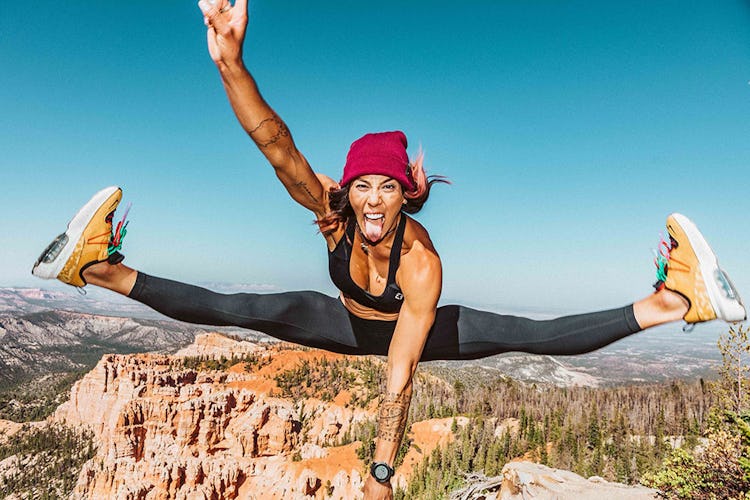
Totally. Look, what I do is a business. Onnit is a business. But they’re businesses with real, authentic people that stand behind them and that care about the quality of what we put out. It’s easy to put a supplement out: get shitty ingredients—it’s going to cost you a lot less money. But going back to longevity, how long will a company like that last for? I want to treat my team the same way I would treat my family. I want to be able to recommend the same products that I produce.
That’s the first thing that comes to my mind when I design my apparel. I’m not going to have anything in a store that I wouldn’t wear myself. I want to give it the sweat test, and I want to be able to, one day, say that my whole wardrobe is what’s in my line. But you can’t cut corners. You can’t make these things happen quickly. And if you do… all it takes is one bad egg and you’re done. No one’s ever going to pay attention to you or ever want anything to do with you again. But if you’re generally operating from your heart and from the way that you would like someone to treat you, I think that you’ll stand out.
I’ll tell you a quick story. I came out with an app, and when I was shooting the videos for it, I thought, “I have to have my hair done. I have to have my makeup on. I need matching outfits. That’s the way it’s got to be done.” But I was forgetting that I built my business on Instagram, and in those videos, I don’t have any makeup on, I have snot coming out of my nose, and sweat all over the place. I have no idea half the time that anyone’s even watching.
Someone called me out about that on my app. Someone commented on the app, saying, “We really appreciate the effort that you’re putting in to make this a production, but drop the fancy outfits and just give us workouts.” It became so obvious that people were just craving authenticity.
You may not believe me, but the truth is I don’t look on Instagram. My whole world is on this device, and it’s an incredible tool, but as soon as I start looking at who’s out there, I’ll start comparing myself to what other people are doing. I start to second-guess myself. I sympathize with the younger generation because this is a part of normal life now—seeing what other people are doing all the time and thinking, “that must be the right way to do it.” But if you’re truly doing what you want to do, what you love and feel passionately about, then you don’t need to look at what anyone else is doing.
I think your followers look and go, “Here’s Hannah Eden of Hannah Eden Fitness. She rocks this scene. She doesn’t care and she’s just herself…” And yet you have had your challenges along the way. I think that’s so important for everybody to know that you don’t have to feel like you have it all figured out in order to be pursuing your best life.
Back in Year One, I had no idea what I was doing. All I knew then was that I was really interested in fitness and I enjoyed it and I was willing to do my darnedest to try and make it into something. And I’ve done a lot of things in fitness that a lot of times failed. But the ones that hit, hit. You can’t go through life wondering if you’re going to hit it. You just got to keep swinging and just see what happens.
I think that it’s really important to know that the person I was before I got into this industry was not anyone that you would have thought would be able to transform into this person that sits here now. I was the most negative, angry, blame-everyone-else-for-my-lack-of-success person. I was a very dark, angry little girl.
But I realized that you get to a point where no one’s going to tell you to stop. When you’re an adult, no one’s going to call you out for doing something that was really not cool. They’ll just know that that’s the kind of person you are and they won’t let you get close to them.
That was my epiphany. I kept pushing the envelope, and I think I was waiting for someone to slap me and tell me to stop, but they didn’t. Until I finally realized for myself that if I keep going, I’m going to die. So I had to be the person who told me “stop.” You have to stop looking outward for the world to fix your problems, and start looking inward. Just work on your own shit and then ask for help once you’ve done what you can.
When you find what you want to do, do it over and over and over again until you get better at it. There are no secrets. It’s just consistency and refusing to quit. You could do what I’m doing with fitness with something else. I didn’t go to school. I don’t have a bachelor’s degree in X, Y, and Z. I took it upon myself to try and make this happen. But I don’t think I would have been able to do that if I was doing it in the wrong area. I genuinely believe that everyone has a version of Hannah Eden Fitness in their world if they’re willing to tap into spaces that they’ve never tried before and find it—what they’re truly passionate about.
To me, it’s like the idea of nutrition and supplements. Figuring out your reason why you do something is your main meal—the real food. You can add supplements to it, but you’ll never survive on them alone. They can only supplement the good food and make it more powerful.
That’s a hard concept to understand, because everyone wants the quick pill. Which reminds me that I’ve experimented with a lot of different types of food choices. Now I’ve settled in this space where I’d rather eat good 80% of the time for the rest of my life and eat like an asshole the other 20% of the time than eat 100% clean for a year. I’ve done that. If you’re trying to achieve a specific goal, that’s important, but I think the 80:20 balance, while it comes with more body fat, it also comes with a lot more happiness. I can do it forever, because it’s genuine and I enjoy it.
And the fact that you’re doing right 80% of the time means that you’re just 20% away from 100%—and there may be times you want to go 100% for a while and that’s OK.
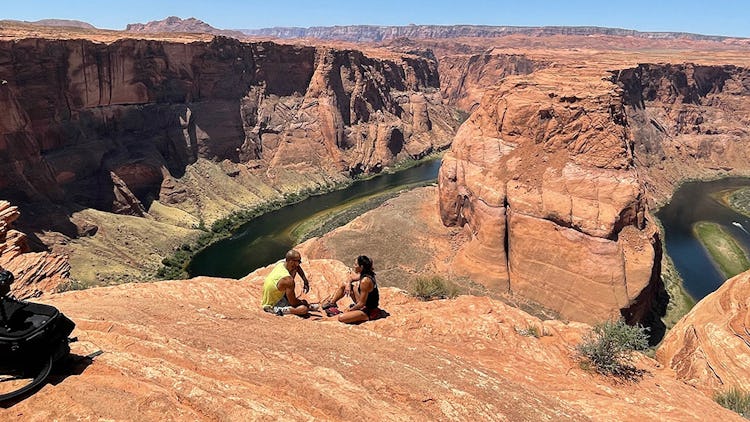
Yeah, and I will from time to time. But I won’t stay there for long because that means no drinking, and picking pieces of grains off my plate to make sure I hit my macros exactly. That will get you to a goal, but I think we have to experience more out of life if we want to stay in it for the long run.
The same goes for workouts. Just because someone looks a certain way because of the workout that they’re doing doesn’t mean that if you do that workout, you’re going to look like that. That’s a big misconception. No, you’ve got to find what you love to do. Something that you’re going to like doing on a good day and a bad day. If it’s not high-intensity interval training with a kettlebell, then why are you on my page? I don’t want to set you up for failure. You have to tap into what you want and where you’re at.
We often see in our certifications, the Onnit fitness education system, that people come in initially with the thought that they’re getting this magic pill. “This is going to be the new thing that’s going to light up my world, and this will be the new route that I go in fitness.” But we tell them that everything we’re going to show you is meant to serve your journey so that you can continue to do what you love better—whatever that may be. And I hear that in what you’re saying. There are certain things that you offer, and if one thing is not aligning for someone, why should they force it for a particular outcome? You have to find what works for you and stay consistent with that.
I think a mistake we all make is trying to hone in on one thing that will fix all our problems for the rest of our lives. And the reality is that we have different life situations that come up. We have people who come into our lives, people who leave our lives. We move to different places, get different jobs, and we age. No one thing can make all of that OK, and we have to remain open to exploring what we need to handle our problems now, and know that that may change next year.
That makes me think of another story. I remember having a really uncomfortable conversation with a close friend at the beginning of my career. I dove into fitness head first, and pretty intensely. I made choices that took me away from social settings, and away from home. My friend said to me, “I just want to let you know as your friend that you’re really changing.” He made it sound like it was something bad. I was like, “Yeah, I’m not present at the bar on a Friday night for happy hour anymore. I’m out there now trying to better my life. Yes, I’m changing.”
The people that are supposed to be in your life will support the fact that you’re out there grinding, trying to improve and better yourself.
It’s really hard to change your life but you have to know that you are so worth it. Self-compassion plays a big part. I used to be very mean and angry. It was a defense mechanism. And I think once I started to love myself, then I was able to love other people. And that was all through fitness. I built confidence, strength—physical strength that made me feel internally strong.
That’s great. I grew up with the belief that we are never tested beyond our capacity. As far as hard work and discomfort goes, the question you have to ask yourself is, “Do I deal with the discomfort that comes with making progress, or the discomfort that comes from NOT making any progress?”
Yes. Ryan Holiday is the author of The Obstacle Is The Way, and hosts a podcast called The Daily Stoic. He basically argues that when the shit hits the fan, it was meant to do that. When you’re tested, it’s so you can learn and grow. It’s just hard to see the lesson when you’re going through something hard. But there are lessons in losing people, in what you do after that person’s gone. Maybe you look at life differently.
I lost one of my really good friends to cancer. It was a really hard time because, due to my business, everything in my life is so public and exposed. That was the first time and the last time in my career I was ready to walk away from the spotlight because I was so concerned about how I was going to deal with it. I wondered if I’m really an imposter, because I’ve been talking about being strong but now I’m in a situation that I feel I can’t handle. Maybe that makes me a fake. But that ended up being a big turning point for me because I didn’t just feel sorry for myself. I got through it. I think that we can all use the bumps in life to make us better people if we let ourselves.
I think it’s too easy for us to tell ourselves that “When I do this, or when I overcome this obstacle, I’ll be happy. I’ll be happy when all this settles down.” The truth is that it’s the opposite. When you prove to yourself that you have the capacity to take on more than you think, you become happier with yourself.
Let’s take some questions from the viewers… What keeps you grounded? Do you have any spiritual practices?
I do a lot of mindfulness work and I do a lot of reading. But I think, first of all, my workouts are a form of meditation, where I’m not thinking about anything and I can’t hear anything other than my own breathing or what rep I’m on. I also do a lot of journaling. I do morning walks. I leave my phone alone—I refuse to look at it in bed.
I also try to list things that I’m grateful for, because gratitude is the biggest changer in my life. When you lack gratitude, you start to lack joy. And so I close my eyes every morning and I start listing things that I’m grateful for that are not material.
What books are you reading right now?
Relentless, by Tim S. Grover, who was Michael Jordan’s and Kobe Bryant’s basketball coach. Fantastic book.
How often do you work out?
When I had a gym and was at the gym every day, I would train one time with my big classes and then often supplement with strength training three to four days a week. But now that I’m on the road, I train less than an hour, five to six days a week.
Any last thoughts that you’d like to share before we close this out?
I hope that this conversation made me a little bit more human to the audience. If I was able to change my life, I honestly think that you can too, whoever you are. And the only thing that’s in the way is you. That’s a really hard truth, but it’s the truth. Thank you, and I appreciate you all!
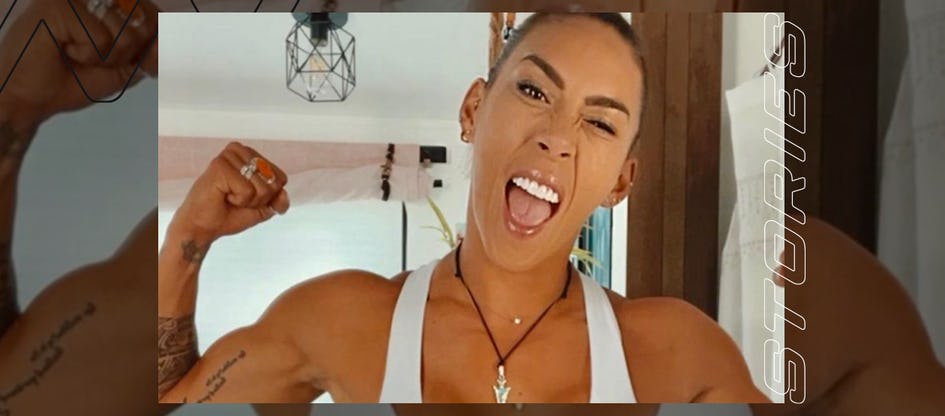
)


